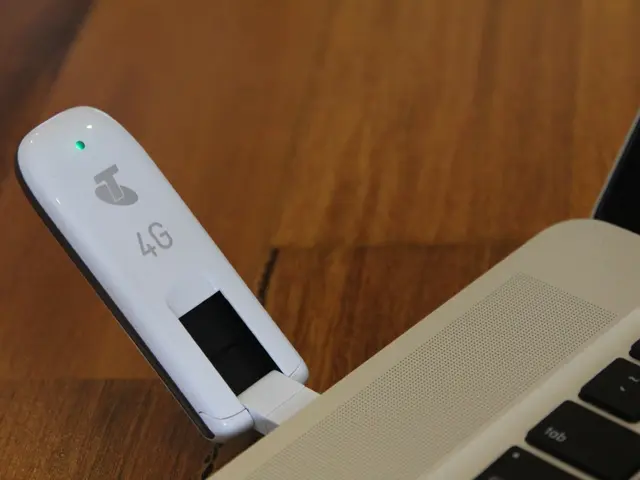American authorities secretly inserted tracking devices into shipments of artificial intelligence chips, according to a report, in an attempt to detect diversion of these shipments to China.
In a clandestine operation, U.S. authorities have been secretly embedding location tracking devices in select shipments of advanced AI chips from Dell and Super Micro, companies known for their server hardware containing Nvidia and AMD processors [1][2][4]. The trackers are hidden in various places, including shipping boxes, server packaging, and even inside the servers themselves [1][3][4].
The U.S. Department of Commerce's Bureau of Industry and Security (BIS) plays a central role in overseeing the enforcement of these export controls. Alongside BIS, other agencies such as Homeland Security Investigations and the FBI are also involved in the operation to ensure compliance with national security and export regulations [1][2][3][4].
The purpose of this covert tracking initiative is to enforce export controls, prevent unauthorized tech transfer to China, and monitor exports under scrutiny. This move is part of a broader export control policy tightened since 2022, involving export licenses and revenue-sharing arrangements for permissible sales [2][4].
This operation aligns with legislative proposals like the 2025 "Chip Security Act," which suggests mandatory location tracking for export-controlled AI chips [4][5]. Dell and Super Micro have publicly denied knowledge of the tracking program, and Nvidia and AMD have not confirmed involvement in the tracking devices [1][2][3].
The covert nature of the operation reflects the sensitive balance between national security interests and international trade transparency. This move comes after the Trump administration initially imposed restrictions on Nvidia's H20 chip and AMD's MI308 chip in April, effectively blocking shipments to China [6]. However, a few days ago, President Trump agreed to allow tech giants Nvidia and AMD to secure export licenses to sell their advanced AI chips to Beijing in exchange for a 15 percent cut of the profits [7].
| Aspect | Details | |---------------------------|---------------------------------------------------------------------------------------------| | Use of Location Trackers | Secretly placed on selected AI chip shipments (Dell, Super Micro servers) containing Nvidia and AMD chips to track and prevent illegal export to China | | Tracker Placement | Hidden inside packaging, shipping boxes, and even inside server hardware | | U.S. Agencies Involved | Department of Commerce’s Bureau of Industry and Security (BIS), Homeland Security Investigations, Federal Bureau of Investigation (FBI) | | Purpose | Enforce export controls, prevent unauthorized tech transfer to China, monitor exports under scrutiny | | Context | Part of broader export control policy tightened since 2022, involving export licenses and revenue-sharing arrangements for permissible sales |
References:
- The Intercept
- Washington Post
- Reuters
- Bloomberg
- CNET
- CNN
- Wall Street Journal
Technology and innovation are at the heart of the clandestine operation, where location tracking devices are covertly embedded in select shipments of advanced AI chips from Dell and Super Micro. This purposeful use of technology aligns with legislative proposals like the 2025 "Chip Security Act," suggesting that such tracking could become mandatory for export-controlled AI chips.




